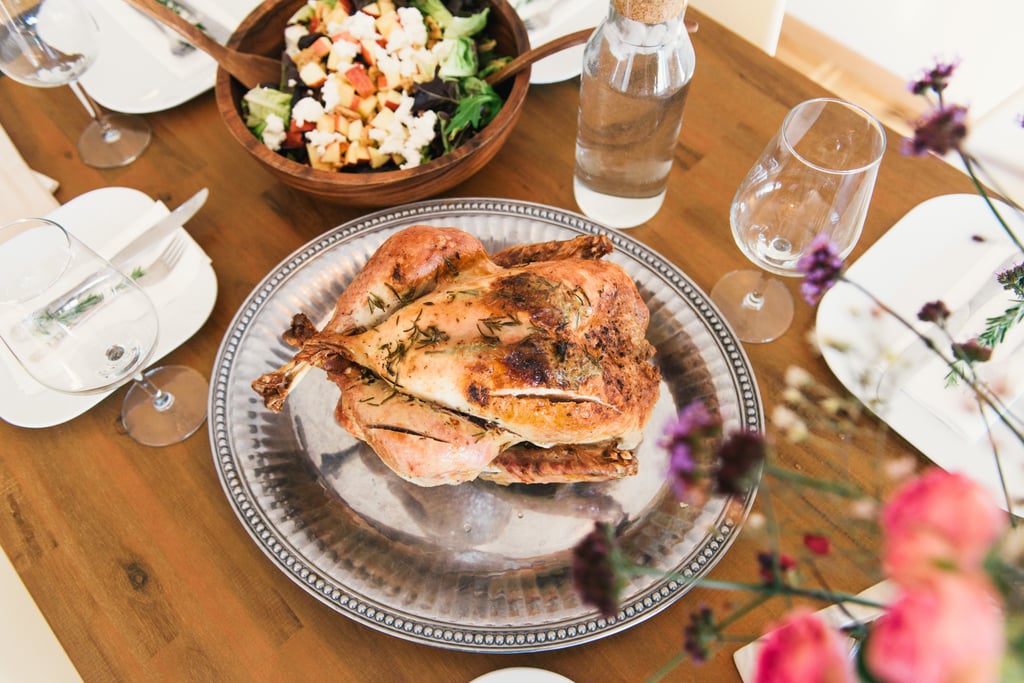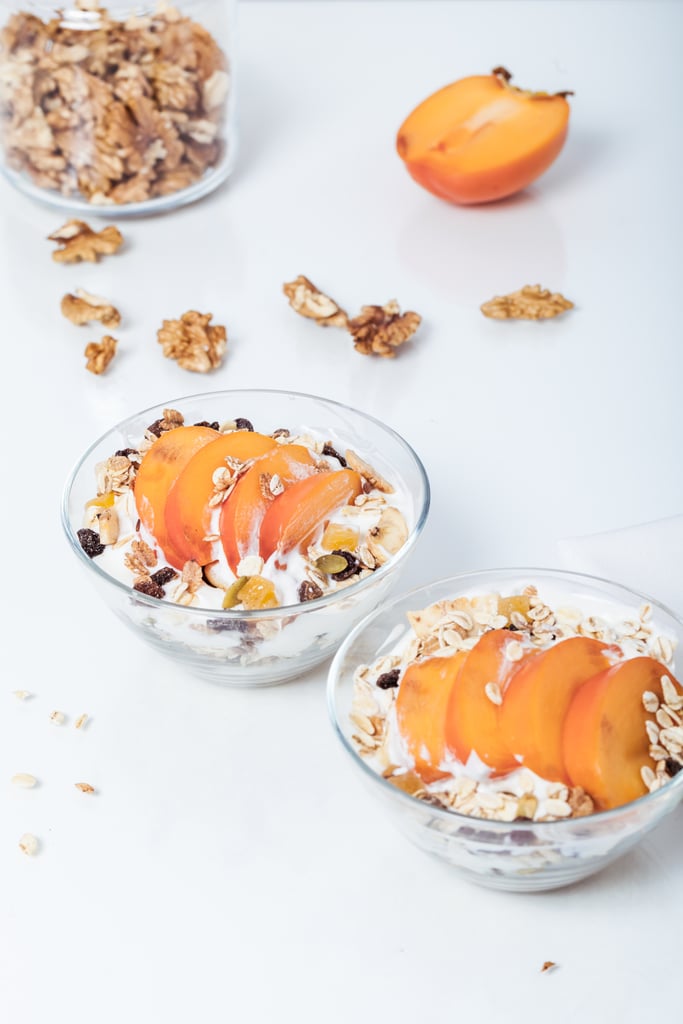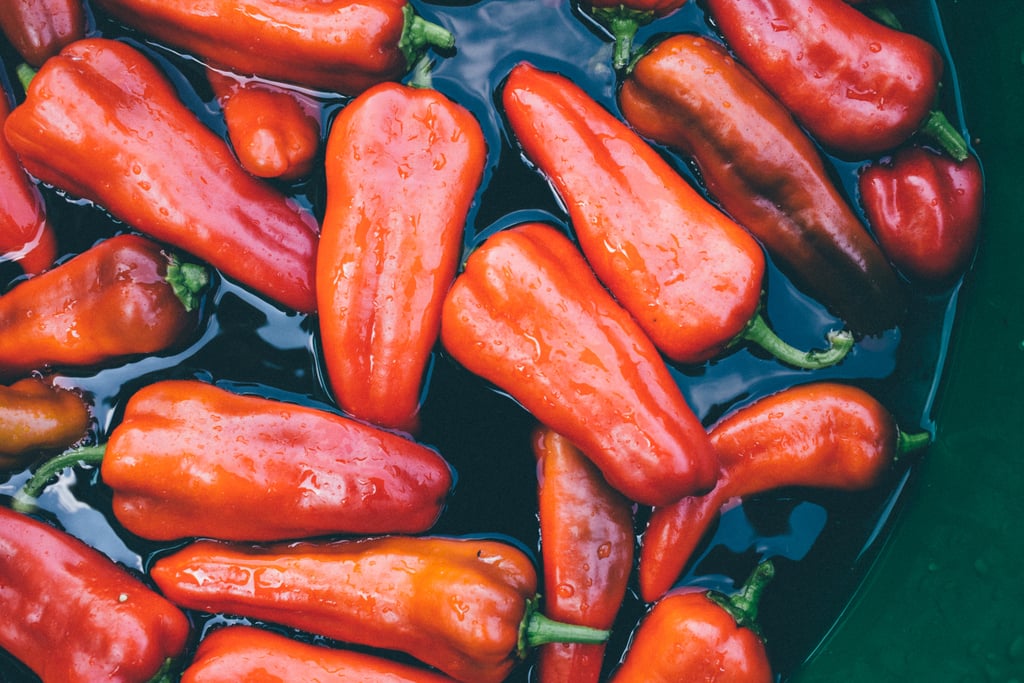This article was originally featured by What to Expect [1], a pregnancy and parenting brand helping every parent know what to expect, every step of the way.
Even if you're already packing an alphabet's worth of vitamins and minerals into your daily meals, you might still worry that you're not taking in enough of the right stuff — especially if your appetite hasn't quite gotten up to speed just yet. Enter these "nutritional superstars" — pregnancy power foods that pack plenty of nutrients into just a few bites, making them especially effective when efficiency is a priority (as when you're too sick to eat much, when you're gaining weight too fast [2], or when you're not gaining quickly enough [3]).
Lean Meat

The amino acids in protein are the building blocks of every cell in your and your baby's bodies. High-protein foods [4] also keep your hunger at bay by stabilizing your blood sugar, which is why you should aim for three servings (that's about 75 grams) of protein per day. Lean meat is an excellent option, since it's also high in iron, critical to help your baby develop his red blood cell supply and support yours, too (blood volume can increase by as much as 50 percent when you're pregnant, which is why anemia during pregnancy [5] is so common). Iron also helps build baby's brain by strengthening nerve connections. A little goes a long way, so add a bit of beef, pork or lamb to veggie-filled soups, salads and rice or noodle dishes.
Don't eat meat? Iron-rich vegetarian options include dark leafy greens, cooked dried beans, quinoa, lentils, dried fruit and tofu.
Tip: Pump up your iron absorption by pairing an iron-rich food with one that's high in vitamin C (like red bell peppers, citrus fruits, tomatoes, strawberries or kiwi).
Lentils

One of the most important nutrients for pregnant women is a B vitamin called folate (or folic acid when you take it in a supplement) — and lentils are packed with it. Folate is vital to forming your baby's brain and nervous system [6] and has a powerful protective effect against neural-tube defects like spina bifida, a birth disorder in which part of the spine is exposed. Lentils also boast protein, vitamin B6 and iron. Plus, they're particularly intestine-friendly (and spouse-friendly) and can readily absorb a variety of flavours from other foods and seasonings. Eat as a side dish or toss into salads, soups and stews.
Don't like lentils? Spinach is also rich in folate, along with iron, vitamin A and calcium. Buy it in ready-to-eat, prewashed bags and eat it raw, in a salad, as a wilted bed for fish or chicken, or layered in lasagna.
Tip: Because the benefit of folate is so significant — and most effective very early in pregnancy (usually before you even know you've conceived) — most cereal, pasta, bread and rice products are now fortified with folic acid, and it's a major ingredient in prenatal supplements [7].
Yoghurt

Your baby needs calcium for his growing bones [8], and you need it to keep yours strong and to help your muscles and nerves function. Aim for about 1,200 milligrams (that's four servings) every day. One of your best bets? Yoghurt: cup for cup, it contains as much calcium as milk — plus it's packed with protein and folate. The active cultures (i.e., good bacteria) in yoghurt can also help prevent stomach upset as well as yeast infections (which are more common in pregnancy). Blend yoghurt with fruit into smoothies, layer with granola in a breakfast parfait, substitute for sour cream or mayo in sandwich fillings, dips and salad dressings, or simply spoon it out of the carton.
Is your diet dairy-free? Find more calcium-rich foods to include in your diet [9].
Tip: To get the most calcium out of each serving, look for products that are also fortified with vitamin D, which boosts absorption.
Wild Salmon
Cold-water fish like salmon is packed with essential omega-3 fatty acids, most importantly a type called DHA. These healthy fats are "essential" for a number of reasons: The body can't make them on its own, they help metabolize fat-soluble vitamins like A and E, they may help reduce the risk of prenatal depression, and they're critical for the development of your baby's eyes and brain (both the brain and retina are primarily composed of DHA). The Food and Drug Administration and Environmental Protection Agency encourage pregnant women to eat 8 to 12 ounces (two to three servings) of fish every week [10]. Opt for wild salmon, sardines, herring and farmed oysters, which are all high in omega 3s and safe for pregnancy. Cook or serve them up with acidic ingredients like sour cream, fruit salsa or lemon juice.
Not a fan of fish? Try these other omega-3-rich foods [11], including tofu, enriched eggs and walnuts.
Tip: Avoid large ocean predators including shark, swordfish, king mackerel, bigeye tuna, tilefish from the Gulf of Mexico, marlin, and orange roughy, which can be potentially high in toxins like mercury and dioxin.
Avocados

Loaded with folate, potassium, vitamin C and vitamin B6 (which helps baby's tissue and brain growth as well as eases morning sickness), avocados are a delicious way to get your vitamins. Spread some ripe avocado on your whole grain roll as a healthy substitute for mayo.
Tip: Keep in mind that avocados are high in fat (though the very good kind) and calories, which makes them filling — but be careful not to overdo it unless you're having trouble gaining weight.
Oats

Oats are full of fibre, B vitamins, iron and a host of other minerals. Along with other complex carbs, they're also packed with fibre (helpful if you're dealing with constipation [12]). Fill your breakfast bowl with them, but don't stop there — add oats to pancakes, muffins, cakes, cookies, or even meatloaf. Aim to eat them along with a variety of other whole grains (whole corn, rice, quinoa, wheat and barley) to up your dose of a slew of baby-building vitamins and minerals.
Tip: Another whole grain that provides an easy way to up your intake: Air-popped popcorn. Its starchiness can help quell nausea, too!
Edamame

These green pods are actually cooked soybeans — and they taste so much better than they sound. Packed with protein, calcium, folate and vitamins A and B, edamame can be scooped up by the handful as a snack (salt them lightly, and you'll never miss the chips), or tossed into just about anything you're cooking, from soups, to pasta, to casseroles, to succotash, to stir-fry.
Tip: Edamame makes a great gas-free stand-in for beans.
Nuts

Nuts are chock-full of important minerals (copper, manganese, magnesium, selenium, zinc, potassium, and even calcium) and vitamin E, plus they're easily portable, making them a filling, on-the-go snack. Even though they're high in fat, it's mainly the good-for-you kind. So in a nutshell, go nuts with nuts (a little if you're gaining quickly, liberally if you're gaining slowly).
Tip: Nuts are a versatile superfood — toss them into just about any dish: salads, pasta, meat dishes, baked goods and more.
Carrots + Peppers

Carrots and red peppers are packed with beta-carotene, which the body converts to vitamin A — critical for the development of your baby's eyes, skin, bones and organs. They're also a good source of vitamins B6 and C, plus fibre to keep things movin'. Both are perfect for munching on the go, with or without dip. Carrots also shred neatly into almost anything (from salads to meatloaf to cakes to muffins). And sweet red peppers are perfect in salsa, stir-fries and pasta dishes; or roast (with a little olive oil, garlic and lemon) and add to sandwiches, salads or antipastos.
Tip: Watch your intake of "preformed" vitamin A, which is found in some supplements, fortified foods, medications and skin products (look for the word "retinol" on the label as a clue). Unlike beta-carotene, which is completely safe during pregnancy, excessively high levels of preformed A can increase the risk of birth defects.
Water

OK, it's not technically a food — but getting enough is just as important to your health as any nutrient. Water has lots of benefits for you and your growing baby [13]: building new cells, delivering nutrients, flushing toxins and more. Water also makes your tummy feel full, so you're less tempted to reach for chips or cookies, and it can help with constipation during pregnancy. Plus, the dangers of dehydration are real: It can up the risk of early labor. So fill up one of those stainless-steel water bottles and take it wherever you go.
Tip: Water from all sources counts (100 percent juice, milk, soup, tea), so don't stress too much if two quarts a day of plain water is, well, too much to swallow. Focus instead on total fluid intake.
Of course this is just a short list. There are plenty of other nutritious powerhouse foods to choose from — grains of all kinds, seeds, yams and winter squash, apricots, kiwi (one small kiwi contains as much vitamin C as an orange, plus it's unparalleled for its laxative effects), papaya and much more.
One last word to the wise: How much you eat is as important as what you eat. If you're starting your pregnancy at a healthy weight, you don't need any extra calories in the first trimester, only 300 extra calories a day in the second trimester (about a cup of low-fat Greek yoghurt and a whole-wheat English muffin), and about 500 more in the third trimester. If you're underweight to begin with, or are carrying multiples [14], your doctor may suggest you eat a bit more; if you're overweight, a bit less. Following her recommendations will help keep your pregnancy weight gain on track — which in turn lowers your risk for having a baby who's too small or too large and reduces your risk for complications like gestational diabetes [15] and high blood pressure.
Related:
Gaining Too Much Weight During Pregnancy: 7 Tips to Get Back on Track [16]
How to Prevent And Treat Amenia in Pregnancy [17]
Choosing The Best Prenatal Vitamin [18]